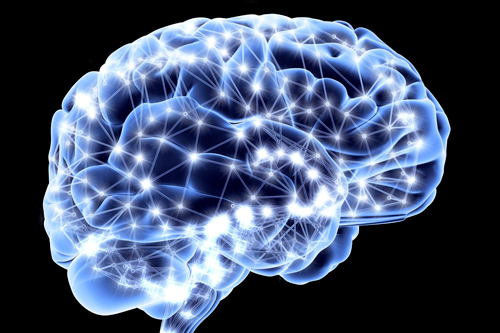 It’s more than just forgetfulness: Alzheimer’s disease manifests in a myriad of complex ways. Frustrating to both patients and their loved ones alike, symptoms such as lack of concentration, memory loss or repeating oneself are sometimes viewed simply as part of the aging process. These types of misattributions only cause more confusion surrounding the still mysterious disease.
It’s more than just forgetfulness: Alzheimer’s disease manifests in a myriad of complex ways. Frustrating to both patients and their loved ones alike, symptoms such as lack of concentration, memory loss or repeating oneself are sometimes viewed simply as part of the aging process. These types of misattributions only cause more confusion surrounding the still mysterious disease.
I remember my first encounter with Alzheimer’s. My late grandmother stating the same sentences in Cantonese, over and over, while my teenage self sat on the couch, not understanding the language yet recognizing the repetitive nature of the sounds and phrases. I would ask, “Why isn’t anyone responding to her?” My mother would then explain that she’d eventually stop and ‘”snap back” into the present moment. Witnessing the ebb and flow of confusion and lucidity in her thoughts and behavior was disheartening and sad. And my grandmother was only in the early stages of the disease.
To learn more about what’s true and false when it comes to understanding Alzheimer’s, we spoke with medical experts pioneering new research and innovative treatment options.
Rusty Gage, laboratory of genetics professor at the Salk Institute for Biological Studies and winner of the Allen Distinguished Investigator Award, along with his research team, are working on discovering the fundamental causes of the disease in order to generate successful treatments.
“Some of the latest innovations in this research include developing stem cells from patients that retain the signatures of aging,” Gage tells us. “This ability will let us, for the first time, study the damage-related aging factors that may contribute to Alzheimer’s Disease.”
Fact or fiction
Gage explains the known facts thus far behind four common myths about the disease:
1. Claim: Alzheimer’s and dementia are a normal part of aging.
Fact: “We know from extensive research that dementia is pathological and those with Alzheimer’s and related diseases should seek clinical care.”
2. Claim: Alzheimer’s is genetically inherited
Fact: “Familial Alzheimer’s disease accounts for less than 5% of all cases.”
3. Claim: Any kind of memory loss is a result of Alzheimer’s.
Fact: “Minor memory loss can result from many conditions.”
4. Claim: Alzheimer’s only affects elderly people
Fact: “People in their 30s, 40s and 50s can also have younger-onset Alzheimer’s, though this is more unusual.”
“Currently, there’s a national effort through the NIH and National Institute on Aging to find out if—and how—Alzheimer’s can be prevented,” explains Gage. “Eating well and exercising can improve overall well-being, so it may be that a healthy lifestyle could delay or prevent age-related cognitive decline.”
Communication theory
The relationship between the brain and immune system is key in learning more about Alzheimer’s disease, according to Dr Michael Schwartz, author of the book Neuroimmunity: A New Science That Will Revolutionize How We Keep Our Brains Healthy and Young.
In the book, Schwartz suggests the immune system works in tandem with the brain, in order to heal and protect it from Alzheimer’s Disease and other degenerative diseases. This idea debunks the long-held belief in the medical world that the brain and the immune system are two separate systems.
Based on this previous assumption, any infiltration of immune cells into the brain was a major threat to health; the standard treatment for inflammation associated with chronic neurodegenerative diseases was to totally suppress the body’s immune system.
However, Schwartz’s research suggests that the opposite is true when it comes to the most effective treatment options. Rather than suppressing the immune system, boosting targeted immune cells in the brain, tailored to the specific disease, may assist in maintaining brain health. Schwartz believes that treating Alzheimer’s with an immune-based therapy will eliminate the brain plaques associated with the disease, helping restore cognitive function.
“At this stage it relates to the common wisdom, whatever can keep the immune system healthy relates to nutrition, physical and mental health. We are currently developing immune-based therapy once things go awry,” explains Schwartz.
While much work is still to be done in the fight against Alzheimer’s disease, evolving treatment options and innovative developments provide new insight into the disease. And more importantly to those wondering why their loved one sometimes doesn’t remember their name, it signifies that hope is on the horizon.
Click here to get inspired by Rose’s easy steps to positively change your mind
Read more about the Alzheimer’s disease and how to prevent it by clicking here


